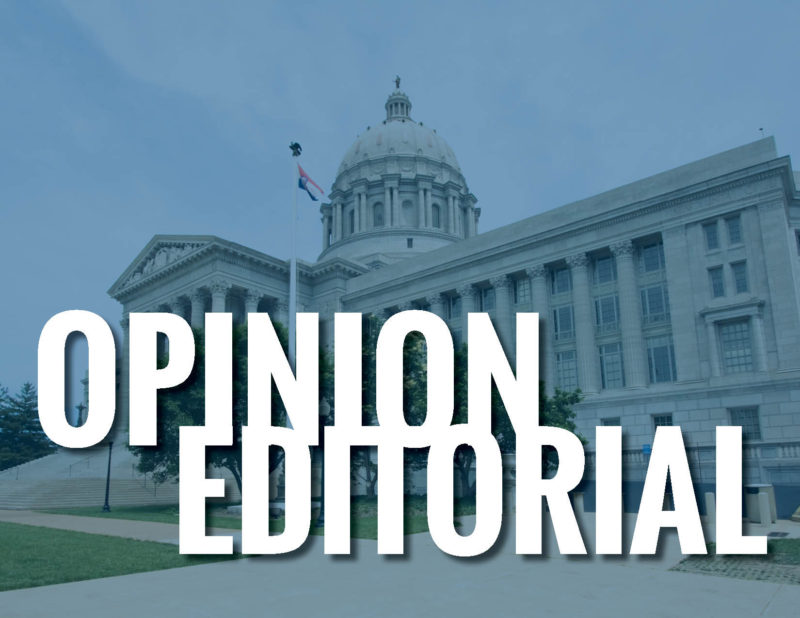By Gregg Keller
Seasonal climate changes are a convenient way for some to seek support for changes in American energy policies, suggesting their idea will help people save money on their heating or cooling bills. That includes former Missouri Public Service Commissioner Terry Jarrett, who argued recently that an uptick in natural gas prices should make us think twice about the role of natural gas in meeting our energy needs. He claimed we should embrace coal and nuclear power as temperatures drop, attempting to cast doubt on whether natural gas can keep us warm through the winter.
As a conservative, this article touched a raw nerve because it suggested policymakers should intervene in the marketplace to prop up coal and nuclear power plants that have become uncompetitive. Today is the first day of winter, and to be sure, natural gas prices are up from recent levels, but that’s no reason for a fundamental shift in U.S. energy policy that has consistently valued natural gas for its price and reliability. I was in the political trenches when conservatives were rightfully critical of President Obama for considering green energy bailouts. If conservatives want to remain consistent and support the free market, they should also reject similar bailouts for coal and nuclear.
Moreover, bailing out coal and nuclear would hurt states like Missouri. I’ve looked at the numbers and the reality is natural gas remains hugely important to Missouri, with consumers – mostly families – using 259,993 million cubic feet of natural gas in 2017. While the price of natural gas fluctuates, Missourians rely on it as a reliable provider of power. Even as natural gas plays a larger role in our electricity grid, the reliability and resilience of our grid is becoming increasingly efficient year after year. An abundance of natural gas has saved customers money, too, more than $100 per year for the average household in recent years. Research shows that consumers stand to save billions more in energy savings with natural gas.
We should always be mindful of the price of energy sources, especially when they rise, but it’s important to keep those prices in context. Despite the recent uptick, natural gas prices are less than half of what they were a decade ago. Healthy supplies of natural gas from America’s energy renaissance have stabilized prices, ensuring that the energy marketplace doesn’t experience the wild swings in natural gas prices we saw in decades past. For example, the recent changes in natural gas prices are well within a healthy range of the historical data seen over the course of the past decade. In other words, we should expect price fluctuations and not interpret them as potential emergencies for the electric grid, especially with natural gas prices are expected to return to normal levels by April 2019.
Throughout the year, energy firms invest in numerous meteorologists and weather models to protect storage levels from becoming too low. That’s why, even during the 2018 Bomb Cyclone, when demand hit its peak, grid operators reported that the system still had excess reserves. This preparation is also why a study from RBN Energy found the natural gas industry was well-equipped to handle response to 2017 and 2018’s Hurricanes Harvey, Irma and the “Bomb Cyclone.” The industry’s investment in underground facilities, line packing and confined impact mean it’s prepared to address extreme weather developments. Similar investments in increased storage capabilities, expected to exceed $80 billion annually, will mean natural gas will continue to be there when needed.
Natural gas supplies aren’t showing any signs of slowing. The Energy Information Administration expects dry natural-gas production to average a record 83.2 billion cubic feet a day in 2018, and climb to another high of 89.6 billion cubic feet a day next year. “We’re going to go from under-stored to oversupplied probably by the summer,” energy market expert Mike Bradley recently explained.
Unfortunately, some critics have used cold weather to exaggerate any risks associated with natural gas and to prop up coal and nuclear power plants that are unsustainable. The truth is that the market has correctly chosen less expensive, more accessible alternatives such as natural gas to replace these aging plants.
Propping up failing coal and nuclear plants would be a mistake for customers. That’s exactly the message sent by PJM Interconnection, which operates a wholesale electricity grid for more than 65 million people, when it released a statement arguing that “any federal intervention in the market to order customers to buy electricity from specific power plants would be damaging to the markets and therefore costly to consumers.”
Changes in the weather should not seduce conservatives to change course on American energy policy. The free market is working and right now natural gas is serving customers well with affordable prices and a reliable, resilient power grid. Conservative policymakers should keep in mind these facts when considering calls to bail out uncompetitive coal and nuclear.
Gregg Keller is a Republican strategist and founder of Atlas Strategy Group.


